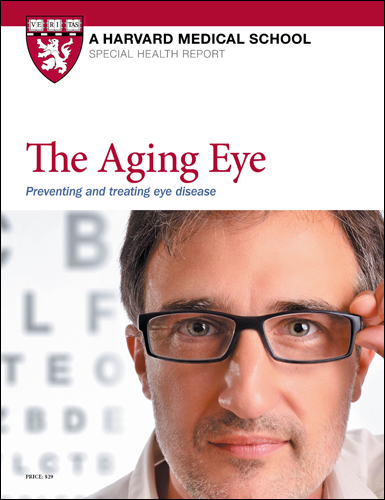Difficulty seeing at night? Try these tips to cope
Slight changes at home and on the road may make a difference.
- Reviewed by Howard E. LeWine, MD, Chief Medical Editor, Harvard Health Publishing; Editorial Advisory Board Member, Harvard Health Publishing

Cats, owls, raccoons, and deer — they're among the animals with exceptional night vision. We humans aren't on the list. Our eyes have just a fraction of the same visual machinery needed to see well in the dark, and our limited ability deteriorates with age (see "How our night vision changes"). The resulting poor night vision sets us up for difficulty driving at night or stumbling in a darkened room, which can lead to accidents and injuries.
How can you stay safe? There's no one medical treatment to restore night vision, but the following approaches can help.
Get regular eye exams. You need a comprehensive eye exam every year or two, depending on your vision. This will identify early signs of eye disease and keep your eyeglasses prescription current. "Uncorrected vision is one of the most common causes of difficulty seeing at night. Often, an updated eyeglasses prescription reduces glare when driving at night," says Dr. Haley Italia, an optometrist at Harvard-affiliated Massachusetts Eye and Ear.
Treat underlying conditions. Dry eyes and cataracts (clouding of the lens inside the eye) make it harder to see at night. Treating them should improve night vision.
Keep a flashlight handy. Get a flashlight app on your smartphone or carry a pocket-sized flashlight in case you need help to see where you're walking.
Turn on the lights. "Consider adding more lamps to brighten your home, and install night lights throughout the house. For reading, I recommend gooseneck lamps, which can be adjusted easily," Dr. Italia says. Also: keep window shades or blinds open during the day.
Maintain your eyeglasses. Wash lenses regularly, and take them to an optician to buff out small scratches or add antireflective coatings that reduce headlight glare.
Keep your windshield and headlights clean. Even a little dirt or dust can make it harder to see the road at night. Get your car washed, and keep windshield washer fluid levels high.
Adapt your night driving. Dim your dashboard lights, which cause glare. Look at right lane markings when oncoming traffic headlights are bothering you. Use the night setting on your rearview mirror. "And use familiar roads and well-lighted streets, which will be easiest to navigate at night," Dr. Italia suggests.
What if these strategies don't work? "It could be that you'll need to limit driving to daytime only," Dr. Italia says. "It's inconvenient, but it's better to be safe."
How our night vision changesWe need at least a little bit of light (like moonlight) to see in the dark. We also need the ability to make use of that light: the eye collects and focuses the light and sends signals to the brain, which translates the light into images. Age-related changes can affect this process. Here are some examples:
|
Image: © Ru_Foto/Getty Images
About the Author

Heidi Godman, Executive Editor, Harvard Health Letter
About the Reviewer

Howard E. LeWine, MD, Chief Medical Editor, Harvard Health Publishing; Editorial Advisory Board Member, Harvard Health Publishing
Disclaimer:
As a service to our readers, Harvard Health Publishing provides access to our library of archived content. Please note the date of last review or update on all articles.
No content on this site, regardless of date, should ever be used as a substitute for direct medical advice from your doctor or other qualified clinician.
















